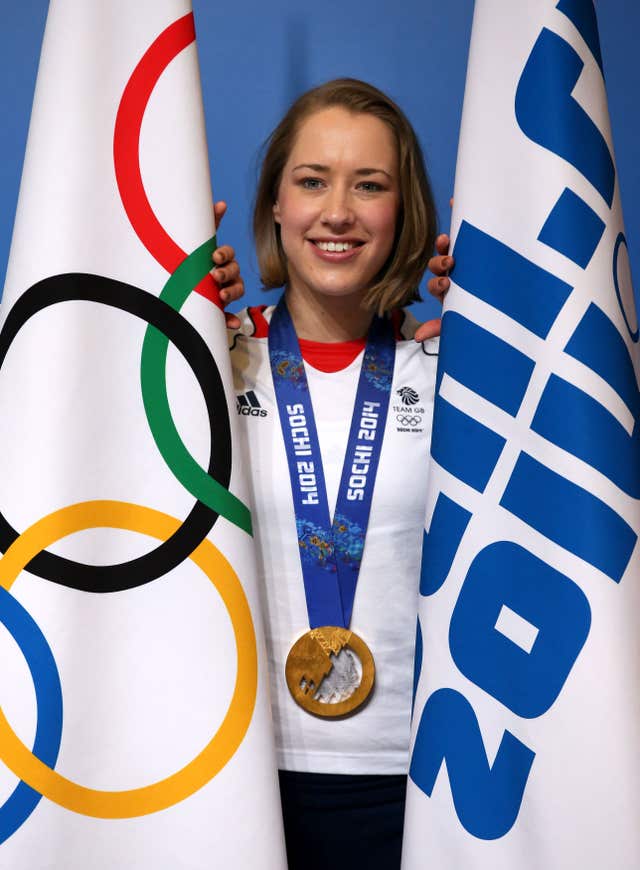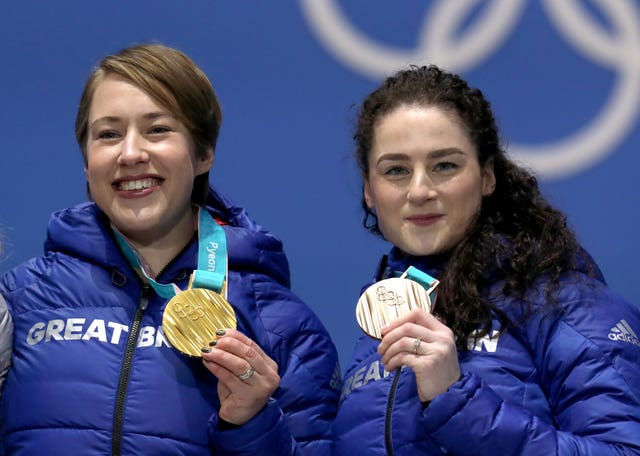Lizzy Yarnold vows to keep anti-doping on the agenda after retirement
The skeleton star has quit eight months after winning her second Winter Olympic gold in Pyeongchang.

Two-time Olympic champion Lizzy Yarnold will remain outspoken about anti-doping following her retirement from skeleton.
Yarnold, 30 on October 31, returned to her old school in Maidstone, Kent, to announce she has quit, eight months after winning her second Winter Olympic gold in Pyeongchang, South Korea.
Her first Olympic success came at the Sochi 2014 Games, which were overshadowed by state-sponsored Russian doping.
Russian athletes who met specific criteria were permitted to compete in Pyeongchang, but not under the Russian flag.
The World Anti-Doping Agency last month lifted its suspension on RUSADA, Russia’s anti-doping agency, in a decision which has been met with criticism from athletes.

“I think it’s clear that many athletes’ view was to not allow RUSADA back in until they had completed all of their requirements that were set out a few years ago.
“Doping issues have, unfortunately, been a part of my career for many years, so I really stand strongly with other athletes hoping we can take anti-doping further and protect clean sport and fair competition.”
Yarnold’s eloquent discussions on anti-doping could hint at a future career in sport governance and she is a member of the British Olympic Association’s athletes’ commission.
She wishes to stay in skeleton, but is looking forward to winter at home in Hampshire with her husband, James.

Yarnold acts as an athlete mentor and plans to attend December’s first World Cup event of the season in Sigulda, Latvia, where she will be supporting British athletes hoping to emulate her success.
Britain have pedigree in skeleton, sliding head-first at 90mph down an ice track, with Yarnold succeeding Amy Williams as Olympic champion. Alex Coomber and Shelley Rudman have won medals too, and Laura Deas claimed bronze behind Yarnold in South Korea.
Yarnold, who won world and European titles in 2015, has plenty to choose from when it comes to career highlights, but she lists her most recent success as her best.
Yarnold had to manage a genetic knee condition and back pain – she has had operations on both since – while also nursing a chest infection which prompted dizzy spells. She did so, to become the first Briton to win two Winter Olympic golds.
She insisted skeleton was not the reason behind her need for her summer back surgery and that she is now fit and happy as she took a moment to reflect at a place she knows well.
Yarnold addressed pupils of Maidstone Grammar School for Girls, sharing her early aspirations in heptathlon and her participation in UK Sport’s Girls4Gold campaign which saw her transition to skeleton.
She has reaped the rewards of her hard work and become an inspiration to the pupils she addressed, as well as many others.
Yarnold added: “It was a very odd moment sitting in that hall where I’ve taken all my exams, I’ve been a part of presentations. I’ve just been through so much.
“It just reminds me that I can say with complete honesty, you never know what’s around the next corner for you.”





